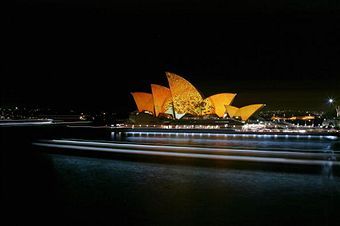 William Hague has been visiting Australia in the last couple of days, alongside half of
the National Security Council. But you would not know it. Except for a few comments in the blogosphere, there has been little write-up of the visit in the newspapers. In many ways this encapsulates
one of the government’s key foreign policy dilemmas.
William Hague has been visiting Australia in the last couple of days, alongside half of
the National Security Council. But you would not know it. Except for a few comments in the blogosphere, there has been little write-up of the visit in the newspapers. In many ways this encapsulates
one of the government’s key foreign policy dilemmas.
Many of the world¹s problems require cooperation with the US, Europe and the BRICs but especially the BRICs, who, for all their flaws and faults, are the fast-growing countries on the planet. If you want to force an end to Iran¹s illegal nuclear enrichment programme, then you need China. If you have any hope of stabilising Haiti, then you cannot do it without Brazil. Worried about conflict in Central Asia and its impact on energy supplies to Europe? You will have to speak to Russia.
Yet while they have become powerful, the BRICs are reluctant to take on the role of a ‘responsible stakeholder,’ to quote World Bank chief Bob Zoellick,
and help solve common challenges. At the same time, keeping ties with ‘old’ allies, like Australia, but also Canada and Japan, excites little interest.
‘What,’ a diplomat asked me when I mentioned the Foreign Secretary¹s trip, ‘can Australia achieve?’ Even in Australia’s own backyard, the country sometimes struggles to make an impact: for
example Kevin Rudd¹s efforts to create an Asia Pacific organisation have come to little.
But keeping ‘old’ allies close is, in fact, crucial. The Obama administration is learning the hard way that though China and the other BRICs remain important these countries cannot be relied on to pursue policies which safeguard US interest for example vis-a-vis Iran or the US dollar. For that, the US needs old allies in Europe.
The same could be said of Britain. The country needs to keep ‘old’ allies close, especially because we are loosing influence to the BRICs. Australia, a country whose soldiers fought alongside
British Tommies in World War I, World War II, Iraq and, more recently, in Helmand, is one of those ‘old’ and
true allies.
Economically, too, the relationship is important. Britain is the second largest investor in Australia (worth AU$24.3 billion) and Australia¹s fifth largest trading partner (worth AU$498.6 billion). Australia is, in fact, the third largest export market for British services. Travel is another key trade between the two countries with visitors from the UK to Australia spending £1.6 billion and visitors from Australia spending £1.3 billion.
In this light, it is remarkable that, during the Labour years, not one of four foreign secretaries or 30 foreign ministers ever managed to visit Australia.






Comments